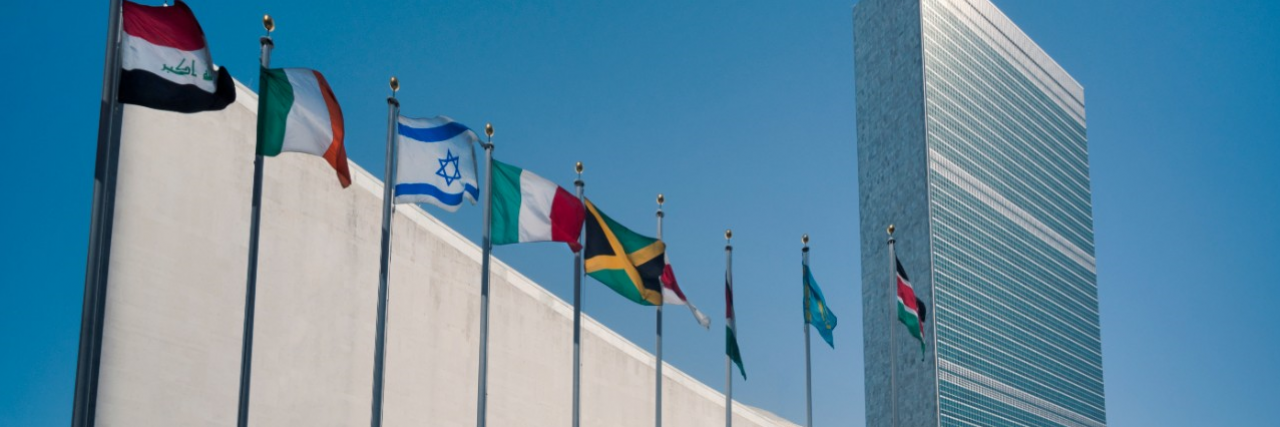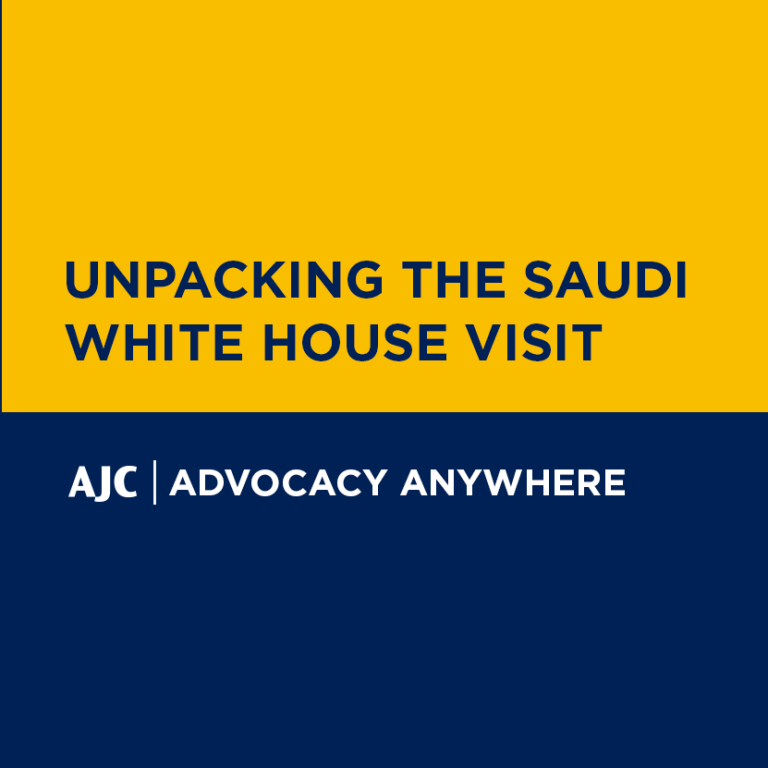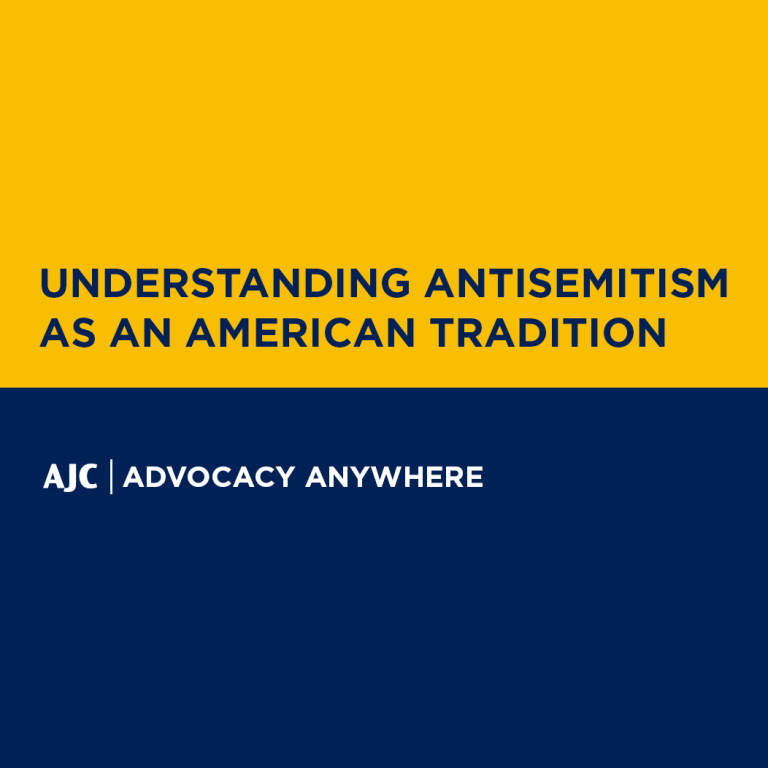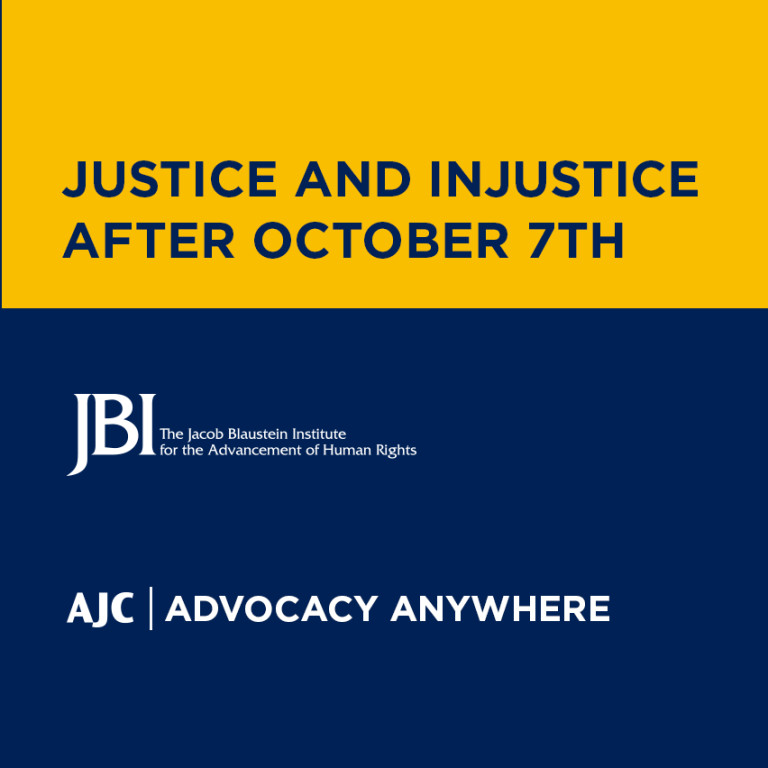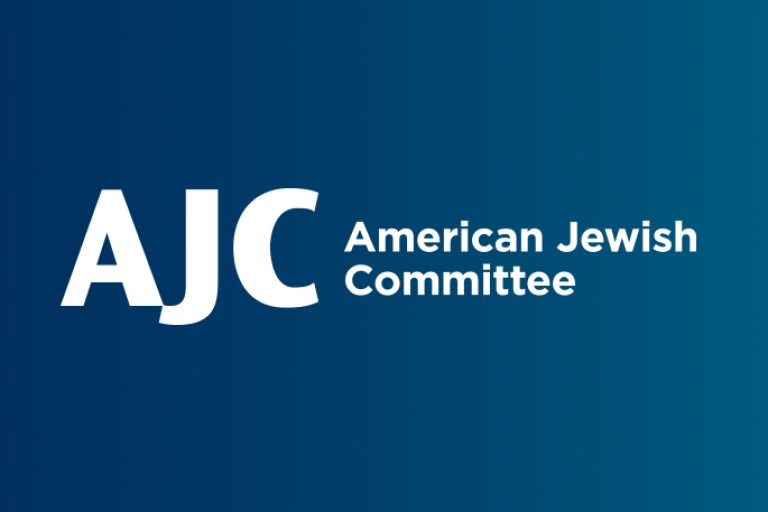April 20, 2020
The rise in antisemitic rhetoric online and in media around the world during the COVID-19 pandemic reinforces the urgent and ongoing need for global cooperation to combat hatred. While the United Nations has a checkered history when it comes to tackling antisemitism, recent steps taken by key UN leaders could help usher in a new era.
Felice Gaer, Director of AJC’s Jacob Blaustein Institute for the Advancement of Human Rights (JBI) and a leading expert on UN human rights mechanisms and religious freedom, assessed the progress, potential, and enduring challenges in the UN's efforts to contribute to the fight against antisemitism during a virtual program on April 20. The discussion was part of a series of digital programs developed by AJC as part of its Advocacy Anywhere initiative.
Gaer began by recalling AJC’s historic support for the creation of the UN and the effective advocacy that ensured that the UN Charter included a focus on protecting human rights. As the UN marks its 75th anniversary, she called its ability to address antisemitism today “a bellwether for the relevance and utility of the organization more broadly.”
Gaer detailed how, in past decades, the UN not only failed to combat antisemitism, but even provided a forum through which some States advanced antisemitic agendas. She recalled occasional denigration of the Jewish religion by State representatives, and the notorious 1975 “Zionism is racism” General Assembly resolution. Later, some State representatives, including Iran’s President Ahmedinejad, used UN platforms to engage in Holocaust denial and advance antisemitic narratives, notably at the 2001 World Conference against Racism in Durban, South Africa and its 2009 review conference. Today, the organization’s intergovernmental bodies, particularly the UN General Assembly and Human Rights Council, continue annually to adopt vastly far more resolutions criticizing Israel than those focused on any other country.
Notwithstanding this, Gaer expressed hope that the world body, in the future, has begun to turn a corner. In a significant shift, in 2019, a UN human rights expert—not a State representative—published the first UN human rights report wholly dedicated to combating global antisemitism. The expert, Dr. Ahmed Shaheed, UN Special Rapporteur on Freedom of Religion or Belief, found that antisemitic incidents have created a “climate of fear” among Jews and called antisemitism “toxic to democracy.”
People of the Pod: Historic UN Report on Antisemitism
Gaer praised Dr. Shaheed’s report and encouraged participants to read it for themselves. She noted that Dr. Shaheed has continued to sound the alarm about antisemitism since the publication of his report, for example in an April 17 statement in which he identified rising antisemitic hate speech related to the COVID-19 pandemic as a major cause for concern.
Gaer also expressed appreciation at the response of UN Secretary-General, Antonio Guterres. Like his recent predecessors, Guterres has strongly condemned antisemitism, but he has also pledged to make the UN more effective in responding to hate speech and has expressed support for the International Holocaust Remembrance Alliance (IHRA) Working Definition of Antisemitism. Gaer stressed that such statements by Secretary-General Guterres and by Dr. Shaheed allow “the UN” to assert moral authority that could “empower those pressing for change.”
Other action to combat antisemitism has included convening recent UN General Assembly meetings specifically addressing antisemitism and the creation of a year-round Holocaust remembrance office at the UN that convenes high-level UN programs marking International Holocaust Remembrance Day each January and promotes Holocaust education globally year-round.
Gaer also emphasized that JBI’s work at the UN is important not only because it promotes opportunities for progress, but also because the ever-present risk of backsliding: “Lack of engagement… ensures that opponents… have a free and clear field ahead of them,” she said.
Gaer concluded that “the UN, when properly engaged by knowledgeable and able advocates, like the staff of [JBI], can be an ally. But the rise in antisemitic rhetoric and incidents worldwide that we’re seeing shows plenty of room for more engagement.”
Advocacy Anywhere is a new platform that will enable you to engage with AJC’s leading expertise, content, and advocacy opportunities from wherever you are, using cutting-edge technology.
